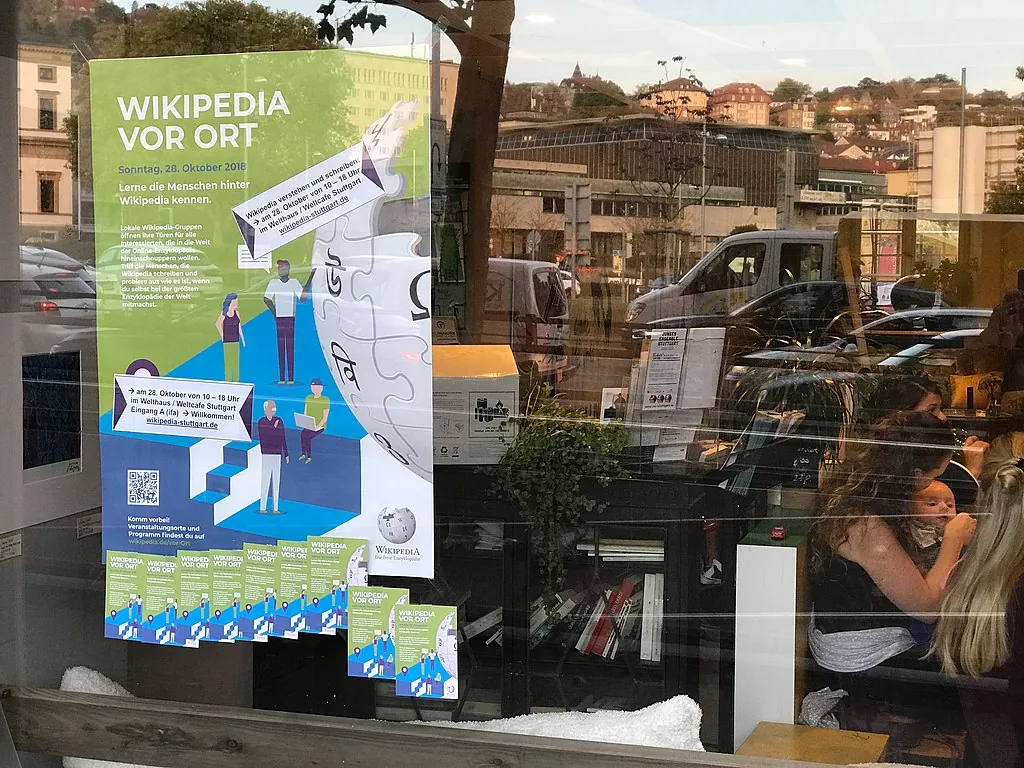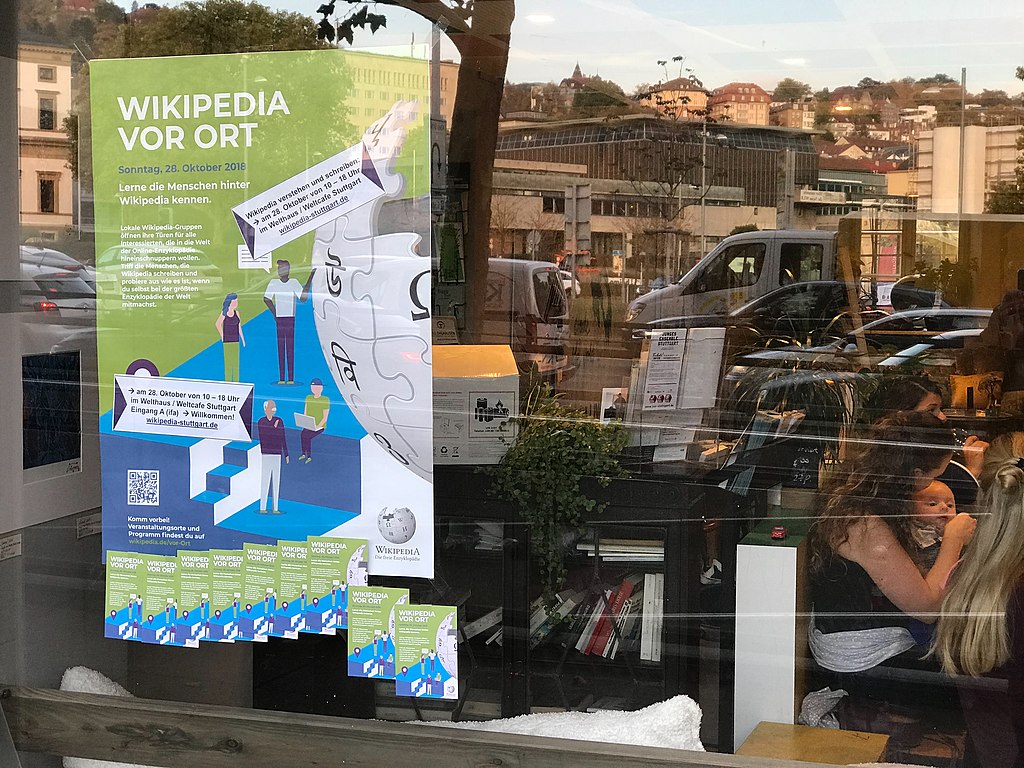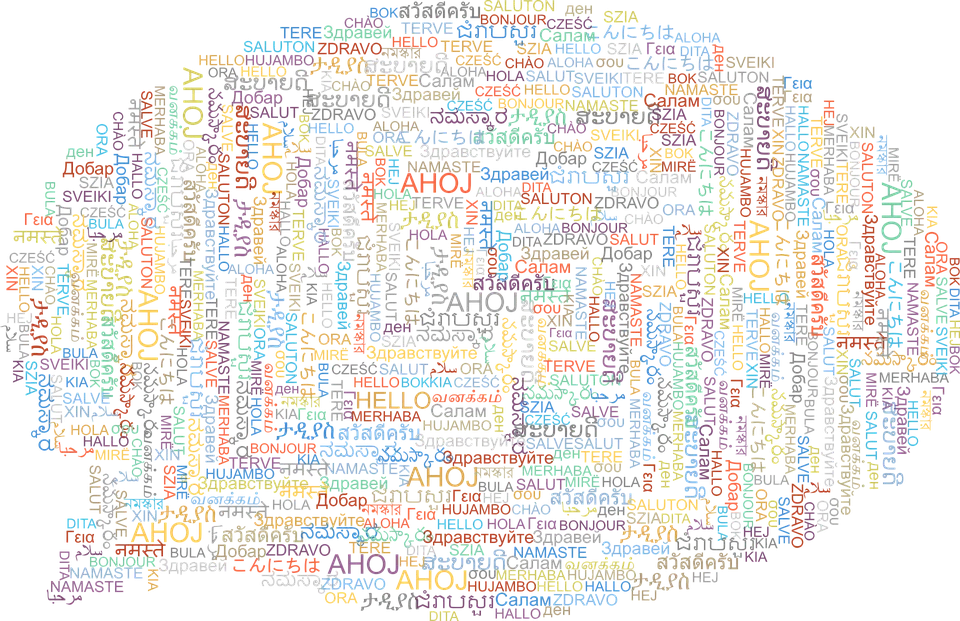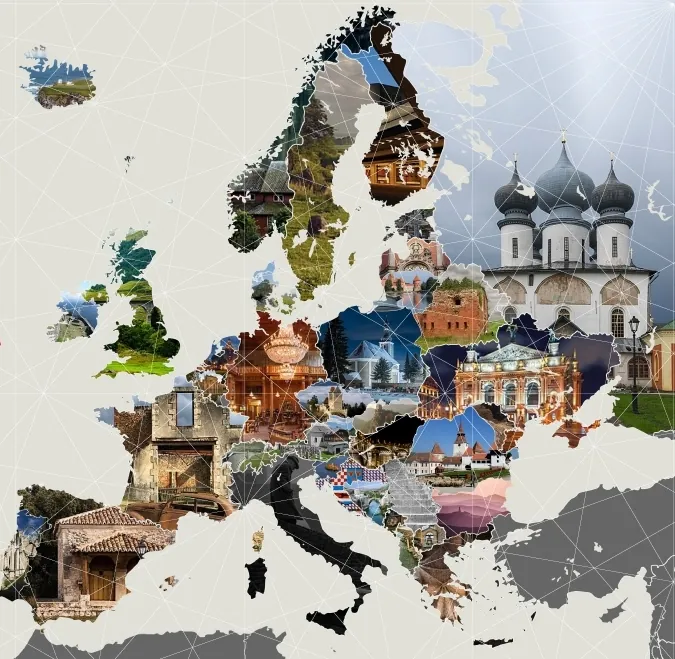Wikipedia Day: “An unexpected huge success”

WMDE allgemein
22. March 2019
Should you send a screenshot to Wikipedia if you find an error? Why is Wikipedia so accurate and reliable even in science? How is content controlled? Questions like these were asked by the visitors – and they were often very surprised that “real” people were actually behind Wikipedia. Some already active authors also found their way into the local group space for the first time via the Wikipedia day.

Wikipedia Day in Stuttgart. Photo: RudolfSimon, Wikipedia vor Ort in Stuttgart 1, CC BY-SA 4.0
The program was as varied as the opportunities for volunteering in Wikipedia. In addition to creating and editing articles, photos also played a major role: for example, visitors to Stuttgart were able to scan historical photos they had found in their attic. Insights into drone photography were offered. At the local space in Cologne, traditional Cologne dishes were photographed such as bean soup with chicken. The Augsburg community organized a photo walk during which cultural-historical monuments and a museum were visited and documented.
Originally planned edit workshops for beginners were not feasible in some places due to the large crowds. Instead, spontaneous lectures and question and answer sessions were quickly improvised. The visitors, from babies to grandpas, were all very interested – many stayed on site for several hours, even sticking around in the evening after the end of the official program.
The idea: new ways of winning new editors

Unconventional lecture solutions became necessary in Cologne. Photo: Geolina163, Local Wikipedia on site 2018 04, CC BY-SA 4.0
For new editors, personal contact can be very helpful when starting to edit Wikipedia and has been offered by many Wikipedians for many years by means of introductory courses, open editing and other formats. The idea for the Wikipedia day emerged in order to build on existing formats, combining online and offline actions, and support local groups in the implementation of various ideas and formats.
Not only were interested people able to get to know the people behind Wikipedia, but they could also learn everything they always wanted to know about the online encyclopedia. Local communities were able to present their work and projects, and new editors were shown how to participate. Thus, the first steps in Wikipedia were facilitated through personal contact.
From an organizational perspective, the Wikipedia day was a major experiment. For the first time ever, we organized a cross-national offline event together with local communities and Wikimedia organizations in Germany, Austria and Switzerland. The eleven local Communities put their hearts and souls and a lot of work into the planning, organizing and the promotion of the Wikipedia day. An online-banner ran for ten days in the German Wikipedia to draw attention to the upcoming event.

Banner for the Wikipedia Day. Graphic: Vkw.studiogood, Keyvisual-wikipedia-lokal-2018, CC BY-SA 4.0
Prior to the event, nobody could be certain about the number of actual visitors that would find their way to one of the local spaces on a Sunday. It was not only the Cologne Community members who expected “a rather relaxed working day”. Everyone was all the more surprised and pleased about the big crowds, as you can read on Twitter.
The conclusion in the words of the Munich community: “A huge success”. The promised look behind the scenes of Wikipedia obviously drew a lot of visitors. It is great to see what the local communities can accomplish together. Congratulations to all people who took part in the Wikipedia day – we are looking forward to a repeat in 2019!





